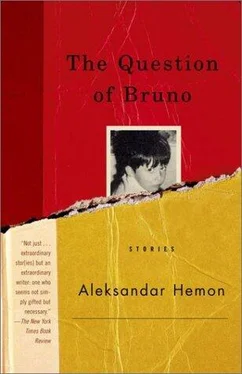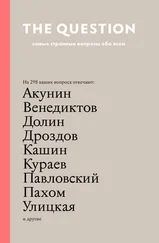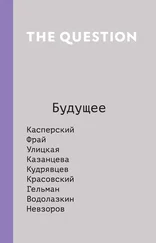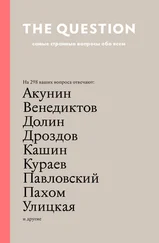This was, for Pronek, the first in the series of what we normally call culture shocks.
He roved all over the airport, imagining that it had the shape of John Kennedy’s supine body, with his legs and arms outstretched, and leech-like airplanes sucking its toes and fingers. He imagined traveling through Kennedy’s digestive system, swimming in a bubbling river of acid, like bacteria, and ending up in his gurgling kidney-bathroom. He stepped out of the airport through one of JFK’s nostrils, in front of which there were cabs lined up like a thin mustache.
Finally, he joined the line of people trickling into the tunnel to the Washington, D.C., plane. “How are you today?” said a steward, not bothering to hear the answer. Pronek had a window seat, and a man who looked as if he had just been attached to an air compressor, like a balloon, sat next to him — the man was so fat that he occupied two seats and had to buckle his left thigh.
“Can’t believe I am missing the Super Bowl,” the man said and exhaled. “I went to every goddamn Redskins game this year and I had to miss the biggie. The fucking biggie. Are you a Redskins fan?”
“I’m afraid I don’t even know the rules of the game.”
“Ah, you’re a foreigner!” he triumphantly exclaimed and exhaled again. “What do you think of America? Isn’t it the greatest country on earth?”
“I’m afraid I don’t know yet. I just arrived.”
“It’s great. People are great. Freedom, all that. Best in the world.” He concluded the conversation with an authoritative head twitch, and opened a book entitled Seven Spiritual Laws of Growth. Pronek looked out at the aluminum sternness of the wing, his body twisted, his cheek against the seat texture, whose chaffing reminded him of his red scarf, and then he fell asleep, until the ascendance of his guts to his throat, as the plane was taking off, woke him up.
Marbles
Pronek hated his neck, because it always got stiff and became a knot of thick sinews. He would keep pressing them, which would just produce more and more pain, while the sinews would wiggle under his fingers, as hard as steel cables. If he ever were to be decapitated, he thought, the executioner would be in danger, for the ax would probably bounce back and split the poor fellow’s head like a watermelon. They would have to soak his neck in acid for a week or so, in order to soften the steely sinews, and then cut off his head.
Pronek and his umbrous co-passengers descended upon Washington, and he had to turn his whole body to look through the window at the feeble capital lights, “like moribund embers under the ashes of a cloudy night” (this was Pronek’s thought at the moment, and we must concede it is rather nice). The flight attendant sneaked from somewhere behind Pronek’s back and startled him, shoving his face in the crevice between the fat man’s chest and the seat in front of him, and asking: “Can I get you another beer, sir?” Pronek turned his whole body — the sinews resisting painfully — like a hand puppet, toward the attendant and allowed him to provide more helpful service. The attendant seemed to be paid per smile and had the tan of an impeccably baked chicken.
Pronek was pushed into the airport building by the piston of his fellow pilgrims, as described before.
First the gigantic tip of a nipple on a stick started flashing and hooting, then the empty carousel started revolving. Bulky bags and square suitcases began dropping out from behind the black curtain, then went — wooo! — down the slide into the immutability of the carousel’s revolution. Pronek’s faceless co-passengers swarmed around the carousel, as if they were bacteria at the bottom of a stomach, and the food to be digested was just being sent from the oral department. Pronek’s bag was lost. He stared at the empty carousel, which revolved meaninglessly until it stopped to shine in conspicuous silence. Pronek had only a handbag packed with books and duty-free shop catalogs, plus a piece of three-day-old bourek, designed by his mother to sustain him on the trip, which was now — we can be sure of that — breeding all kinds of belligerent Balkan microorganisms.
Behind a frail, black, and long ribbon, there stood a man with Pronek’s name (misspelled as “Pronak”), followed by a question mark. The man held it out just above his pelvis, with the lower edge cutting gently into the palms of his hands, so Pronek thought that his name had been taken away from him and given to this man, who was obviously an honest, hardworking, disciplined individual. The man shook Pronek’s flaccid hand hesitantly, as if afraid that the sign might be taken away from him.
The man welcomed Pronek and asked about the trip with fake — but clearly polite — interest. “It was like Marlow’s journey to see Kurtz,” Pronek said. “Wow!” said the man, doubtless unaware of what Pronek was talking about — for which he shouldn’t be blamed. The man had dark, short hair, retreating in disarray from his forehead, with ashen smudges behind his ears. He kindly helped Pronek inquire about the luggage, but to no avail.
Outside, it was snowing relentlessly, as if the ireful God was tearing up down pillows in the heavens. The man drove through the blindingly white maze of the blizzard. He pointed at objects and buildings, which kept popping out of tumultuous snow like jacks-in-the-box: a gigantic toothpick, lit from below, as if kneeling worshippers were pointing flashlights at its pinnacle; a series of buildings that Pronek decided to describe in future conversations with whomever was interested in his U.S. impressions as built in a neo-Nazi, neo-classical, neo-fluffy style (which is not entirely justified, we believe).
“And this is the White House,” the man said, exultantly.
“I always wandered,” Pronek said, incorrectly. “Why it is called White House? Do you have to be white to live there?”
The man did not find it amusing, so he said: “No, it is because it is made of white marble.”
Pronek’s neck was stiffer than ever, at this point practically petrified, so he turned his whole body toward the man and put his left hand on the head-recliner behind the man’s nape, which shamelessly sported tufts of unruly hair. The man glanced at Pronek’s hand, as if afraid that it might choke him.
“Did they use slaves to build it?”
“I don’t know, but I don’t believe so.”
The man’s name was Simon.
They drove in silence, as the storm was subsiding. By the time they got to the hotel, leafy snowflakes were butterflying, taking a break after a hard day’s work. Simon complimented Pronek’s English, and — having established a bond, presumably — informed him that the Redskins had won. “I barely know rules,” Pronek retorted. “It’s a great game,” Simon said, and then invited him to his home in Falls Orchard, Virginia, to meet his wife, Gretchen, and their four daughters. Pronek readily accepted the invitation, although he knew very well that he would never see Simon again.
The hotel was a Quality Inn.
Pronek would remember — to this day — the room at the Quality Inn with eerie clarity: there was a large double bed in a green cape staring at the ceiling with its pillow eyes; a dark TV facing the bed patiently, like a dog waiting for a treat; an ascetic chair, opening its wooden arms in invitation to a bland desk; an umbrellaed lamp, casting its light shyly on the writing surface; a heavy, matronly, peach-colored curtain, behind which there was a large window with a generous vista of an endless wall. The bathroom was immaculately clean, with towels layered upon each other, resembling a snow cube. Pronek kept flushing the scintillating toilet, watching with amazement (he had an entirely different concept of the toilet bowl than we do) how the water at the bottom was enthusiastically slurped in, only to rise, with liquid cocksureness, back to the original level. There were two rubber footprints stuck to the bottom of the bathtub and a handlebar sticking out of the wall. So Pronek cautiously let the water run, stepped onto the rubber footprints, which matched his feet exactly, and grasped the handlebar, but nothing happened.
Читать дальше












